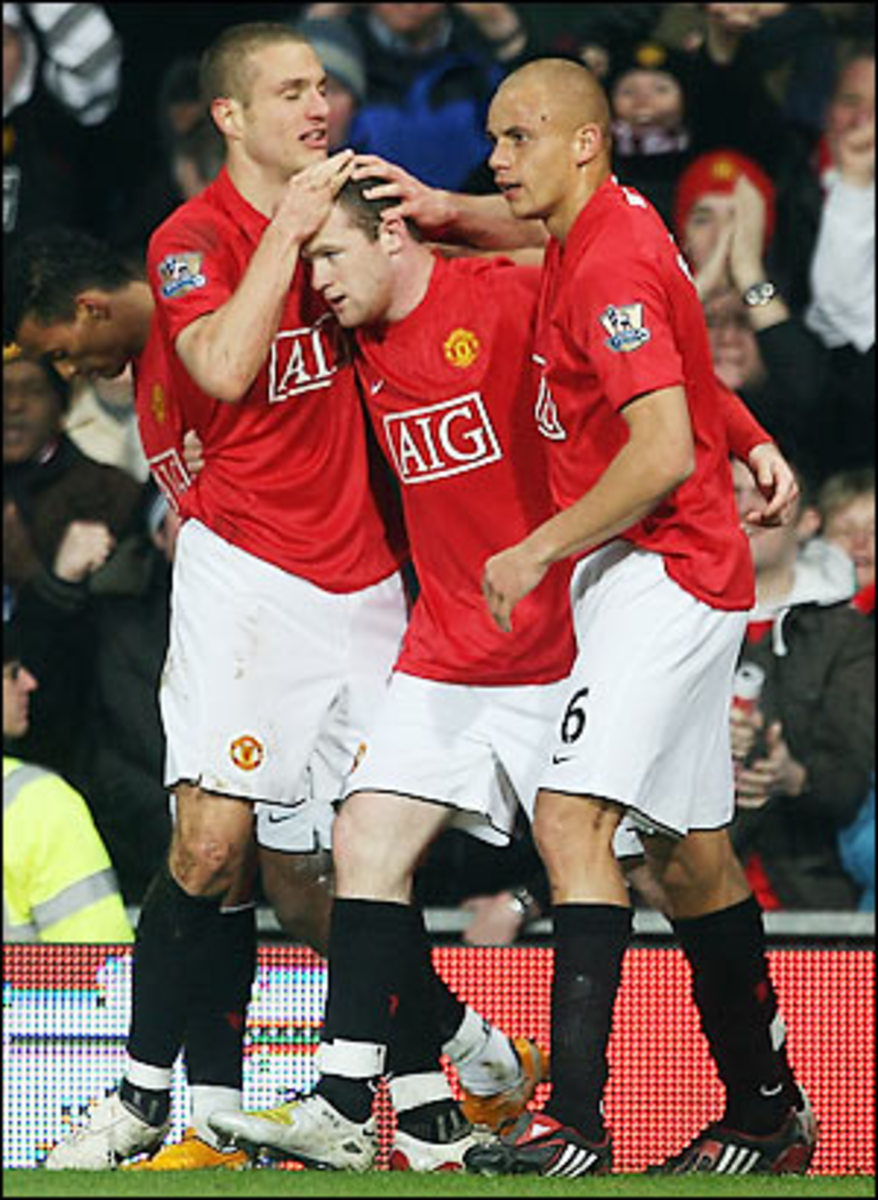Running the numbers
Yet the fact is there are some basic do's and don'ts to transfer spending and managing a payroll. Ultimately, even without a salary cap, every club -- even if it's owned by Roman Abramovich -- has finite resources.
And therefore, it has to decide how it's going to allocate them. What's more, it has to do so knowing full well that its decisions have effects that could snowball.
Take Wes Brown at Manchester United as a case study. Brown recently turned down a new deal worth $4 million a year and reports suggest he's looking for around $6 million. He becomes a free agent this summer, which means he can sign with any other club on a free transfer. So what does United have to consider?
1. Is Brown worth more than $4 million a season in absolute terms?
Probably not. He's a serviceable defender, but no superstar. Had Gary Neville not gotten hurt, he'd be warming the bench. There are probably 20 right backs in the world better than Brown and most of them make less than $4 million.
2. So United is right not to budge from its offer? If he doesn't take it, it can just get somebody else, right?
Ahhh, there's the problem. Brown leaves on a free transfer, so if he goes, United won't get anything back. Which means it would need to find another right back who is as good as Brown (or better). And it would need to not only pay him a salary, it would need to buy him as well. Which could add up quickly.
3. How so?
Well, say United buys a mid-career right back of Brown's level. That would probably cost between $10 million and $15 million. Then you need to sort out the contract, which might be, say, a four-year deal worth at least $3 million, maybe more. You'd end up spending something like $22 million to $27 million over the next four seasons -- at that point you might be better off giving Brown that money.
4. So why doesn't United do that?
Well, there's a little something called the knock-on effect. United's left back, Patrice Evra, also wants a new deal. His contract expires in June 2009 and he would probably settle for $6 million a year. Unless, of course, he sees that Brown is getting that kind of money. At which point he might figure he deserves more, something like $8 million.
5. Is he that much better than Brown?
Probably. And Rio Ferdinand, whose deal also runs out in '09, might figure that he's more than twice as good as Brown (which, arguably, he is) and therefore deserves more than the $12 million for which he's supposedly angling (he's currently earning around $10 million a year). And if Rio gets that, then Wayne Rooney (currently around $8 million) might figure he should get more. As should Ferdinand's defensive partner, Nemanja Vidic, who just signed a deal for a comparatively measly $6 million.
But there's another reason why United won't go too far beyond its original offer. Brown won't get anybody outside the Premier League to pay him $6 million a year. And within the Premier League, its unlikely that Arsenal, Chelsea or Liverpool will give him that kind of money. Which means that, if he wants to get $6 million -- or more -- he needs to look to second-tier clubs like West Ham, Newcastle or possibly Middlesbrough.
6. What's wrong with that?
Nothing ... if all Brown cares about is money. But presumably he wants to win things. He may get $6 million or even $8 million at Newcastle, but will it help his career? He's Manchester-born and bred. He's a millionaire several times over already. He plays for the club he supported as a boy. And he plays on the big stage, challenging for the Premier League and the Champions League. If he moved, it might be a different story.
7. So you're saying that Brown could settle for less money to stay in a place he loves, a place where he wins silverware, a place where he is comfortable? But I thought all footballers were greedy, materialistic money-grubbers...
Some are. Some aren't. Some -- and this may be Brown's case -- realize that when you're a millionaire many times over already, there's no point leaving a place that makes you happy. As one England international told me: "Why stress over getting more money? You can only drive one Ferrari at a time."
There is something about great former players that -- rightly or wrongly -- automatically gives them credibility when they become managers. Marco van Basten is one of the greatest center forwards in the history of the game.
After retiring, he kept a low profile. He said he would never become a coach, but then changed his mind and took the helm of the Dutch national team in '04. Results were mixed, but he did bring innovation.
Now, after Euro '08, his greatest challenge yet awaits: bringing glory back to Ajax, the club where he began his career. Ajax, once one of the most admired clubs around, has suffered from woeful mismanagement at every level over the past decade (as its own internal review revealed recently).
If you remember van Basten as a player, you can't help but root for him. But it's also worth remembering that what he achieved on the pitch will have little or nothing to do with the task ahead.





